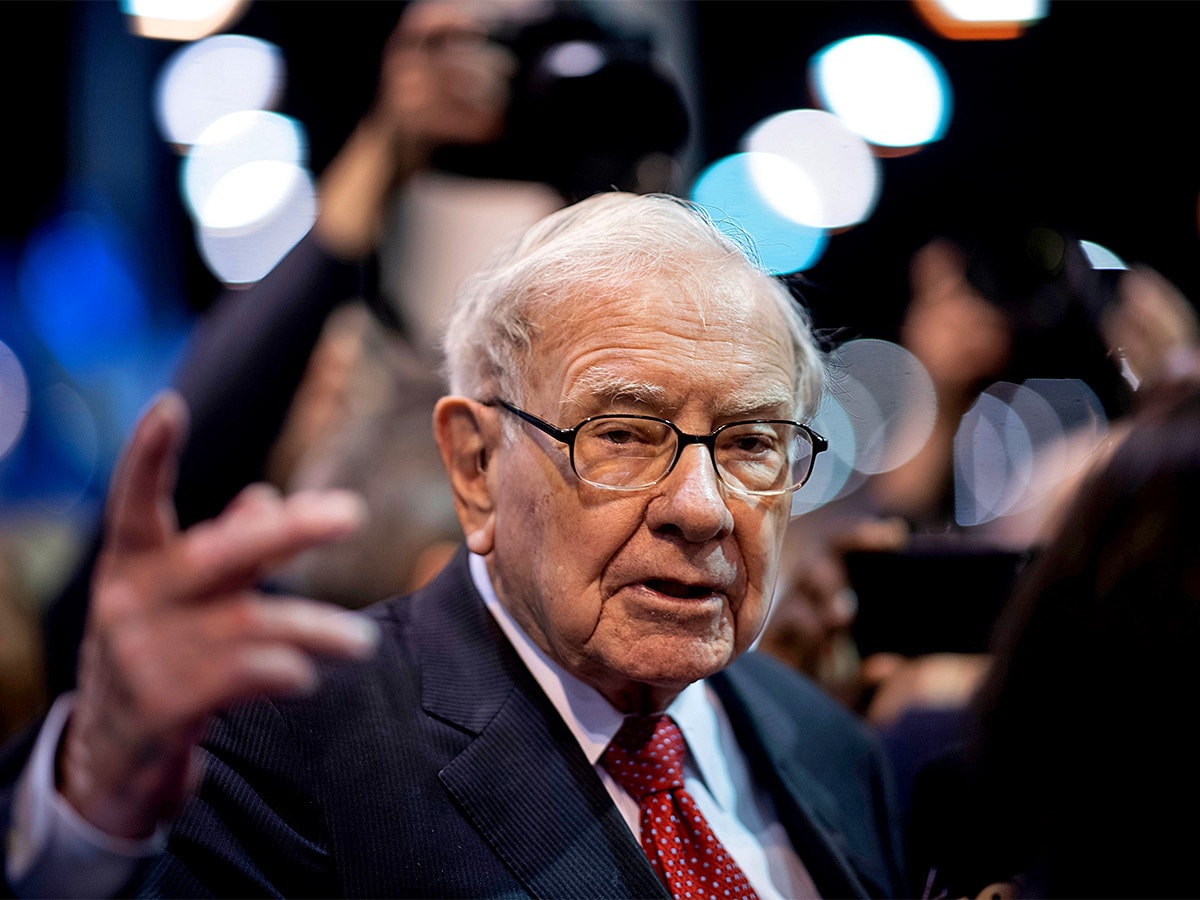While Warren Buffett’s company reported mixed quarterly results, operating profits hit a record $30.8bn for the year, and cash reserves stood at $128bn. In his annual letter to shareholders, Buffett defended his move to buy back shares, and warned investors not to heed the interpretations of the economically “illiterate”.
- Operating earnings slide 8% for Q4, but full-year earnings jump 12% to $30.8bn.
- Buffett urges focus on the long-term, rather than short-term struggles like high inflation.
- Financial Select Sector SPDR Fund offers exposure to Berkshire Hathaway shares.
Shares of Berkshire Hathaway [BRK-B] were trading flat pre-market on Monday after Warren Buffett, CEO and chairman of the company, released his annual letter to shareholders on Saturday. The company’s earnings for the fourth quarter (Q4) of 2022 reveal a mixed picture.
Berkshire announced operating profit for the quarter at $6.7bn, down 8% year-over-year from $7.8bn. However, full-year operating profit reached a record $30.8bn, up 12% from $27.5bn in 2021.
Total quarterly earnings were down 53% to $18.1bn.
In his letter, the 92-year-old investing legend promised that Berkshire would continue to retain a “boatload of cash and US Treasury bills along with a wide array of businesses”.
Berkshire Hathaway’s share price was down 1.6% year-to-date to the close on Friday 24 February. However, the company’s stock managed to rise 3.3% during 2022, a challenging time in which the shares of many other companies suffered.
Critics of share buy-backs “illiterate”
Buffett said 2022 had been a “good year” for Berkshire, despite challenges such as supply chain issues and higher inflation weighing on companies in the portfolio.
Berkshire’s earnings performance reflects its shifting investments in equities, as well as the wider stock market turmoil of 2022. Overall, it reported a $53.6bn loss due to investments and derivatives for full-year 2022, a considerable tumble from 2021’s net earnings of $62.3bn.
Berkshire also disclosed it bought back shares valued at £2.6bn during Q4, compared to buy-backs worth $1bn in Q3. For the year, it has repurchased around $7.9bn of stocks—a sharp decline from $27bn the prior year.
In his letter, Buffett pushed back on economically “illiterate” critics of such buybacks, saying “the math isn’t complicated” and that they benefitted shareholders if “repurchases are made at value-accretive prices”.
In October, Berkshire paid $11.5bn for insurance company Alleghany Corp [Y]. Despite this activity, the company’s cash reserves stood at $128.6bn at the end of Q4.
However, earnings in Q4 for the company’s railroad segment were $1.5bn, down from $1.7bn for the equivalent period in 2021. Berkshire’s insurance-underwriting business also slipped to $244m, down from $372m in Q4 2021.
In a statement, Buffett reiterated his previously stated belief that an individual quarter’s results were “usually meaningless”, delivering gains or losses per share “that can be extremely misleading to investors who have little or no knowledge of accounting rules”.
Berkshire in it for the long term, despite TSMC offload
The value investors who follow Buffett’s investment strategy anticipate his annual letter every year. With its huge portfolio, Berkshire Hathaway’s assets range from insurance to aerospace to fashion and fast food, and the company is thought to be a bellwether for the US economy for this reason.
This year, Buffett, the so-called “Oracle of Omaha” (Berkshire is based in the state of Nebraska) urged shareholders to focus on the long-term picture, and look beyond the factors that hampered companies in 2022, such as high inflation. He also called for faith in American industry, and for investors not to be consumed by “self-criticism and self-doubt”.
Buffett is known for his strategy of holding onto stocks long-term to realise their value. However, in mid-February, Berkshire disclosed in US Securities and Exchange Commission filings that it had sold off 86% of its shares in the chipmaker Taiwan Semiconductor Manufacturing Company (TSMC) [TSM], worth $618m, only a few months after having purchased them. The move baffled some onlookers and drove speculation that the pandemic’s chip shortage could be ending. Berkshire also offloaded shares in US Bancorp [USB] and Bank of New York Mellon [BK].
Funds in focus: Financial Select Sector SPDR Fund
Berkshire Hathaway is the top holding in the Financial Select Sector SPDR Fund [XLF], and currently has 14.04% of the portfolio as of 24 February. The fund also offers exposure to JPMorgan [JPM] in second position, and Bank of America [BAC] in third place, at respective weightings of 10.60% and 6.12%.
The ETF is designed to reflect the financial sector of the S&P 500. Year-to-date, XLF is up 4.3% but over the past 12 months it is down 6.9%.
Other funds that offer similar exposure to Berkshire Hathaway include the iShares US Financials ETF [IYG], which also tracks banks, insurers and other financial companies. Berkshire has a 12.68% weighting in the fund as of 24 February. JPMorgan and Bank of America are again in second and third places, at respective weightings of 9.51% and 4.52%. IYG is up 6.9% year-to-date and down 9.7% over the past 12 months.
Continue reading for FREE
- Includes free newsletter updates, unsubscribe anytime. Privacy policy





